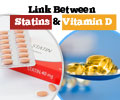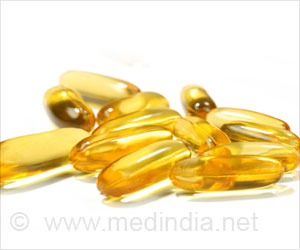Taking Vitamin D Supplements Can Reverse Biological Age by a Year
- Our desire for longevity extends beyond vanity, as certain factors can influence how long we live
- We have two ages: chronological age and biological age. Biological age is influenced by our body's functioning and can differ from our birth-date
- Taking vitamin D supplements may potentially slow down and reverse the aging process
The Two Ages: Chronological and Biological
We have two ages: chronological age, determined by our birthdate, and biological age, influenced by our body's functioning. It's possible to be 30 years old chronologically but have a biological age of 24, which lowers the risk of death (1✔ ✔Trusted SourceThe epigenetics of aging: What the body's hands of time tell us
Go to source).
Reverse Aging with the Secret Shot of Vitamin D
Recent research indicates that taking vitamin D supplements may slow down and potentially reverse the aging process by about a year. Let's delve into biological age and the specifics of vitamin D supplementation (2✔ ✔Trusted SourceRejuvant®, a potential life-extending compound formulation with alpha-ketoglutarate and vitamins, conferred an average 8 year reduction in biological aging, after an average of 7 months of use, in the TruAge DNA methylation test
Go to source).
What can Low Vitamin D Levels do to you
People with inadequate vitamin D levels tend to have chromosomes that appear older. Vitamin D plays a crucial role in slowing biological aging by reducing inflammation, preventing oxidative stress, supporting immune function, improving bone strength, and maintaining the length of telomeres, which protect our DNA (3✔ ✔Trusted SourceThe Relationship Between Vitamin D and Telomere/Telomerase: A Comprehensive Review
Go to source).
Determining the Right Dosage of Vitamin D
Determining the appropriate dosage and frequency of vitamin D supplementation is not a one-size-fits-all approach. Factors such as geographical location, skin color, health conditions, and body weight should be considered. It's recommended to have your levels tested and work with your doctor to determine the optimal dosage based on your needs, lifestyle, and health conditions. Daily vitamin D doses typically range between 800 and 2000 IUs (4✔ ✔Trusted SourceDietary Reference Intakes for Calcium and Vitamin D
Go to source).
Which is the Best Form of Vitamin D to Consume
Taking vitamin D supplements with a meal helps with its absorption, although it doesn't need to be consumed with fatty foods. It is advisable to choose a vitamin D supplement that includes fat, such as MCT or fish oil.While there is no scientific evidence on the best time to take vitamin D, taking it at night may interfere with sleep for some individuals. Consistency is key, so incorporate it into your routine at a time that works best for you.
Not all forms of vitamin D are the same. Opt for vitamin D3, as it is more readily utilized by the body than vitamin D2.
Additionally, taking vitamin D3 in combination with vitamin K2 promotes optimal calcium absorption and bone health. Vitamin D helps with calcium absorption, while vitamin K ensures its incorporation into bones (5✔ ✔Trusted Source
Dietary fat increases vitamin D-3 absorption
Go to source).
Vitamin D Toxicity
Very high levels of vitamin D in the blood can lead to various symptoms like nausea, vomiting, muscle weakness, confusion, pain, loss of appetite, dehydration, excessive urination and thirst, and kidney stones. Individuals with kidney disease or high blood levels of calcium or phosphate should avoid taking vitamin D. Some medications, such as statins and digoxin, may interact with vitamin D and should be considered when determining supplementation (6✔ ✔Trusted SourceVitamin D - Consumer
Go to source).
In conclusion, understanding our biological age and the role of vitamin D supplementation can help us in our quest for a longer and healthier life. Consult with your doctor to determine the best approach based on your specific needs and circumstances.
References:
- The epigenetics of aging: What the body’s hands of time tell us - (https://www.nia.nih.gov/news/epigenetics-aging-what-bodys-hands-time-tell-us)
- Rejuvant®, a potential life-extending compound formulation with alpha-ketoglutarate and vitamins, conferred an average 8 year reduction in biological aging, after an average of 7 months of use, in the TruAge DNA methylation test - (https://pubmed.ncbi.nlm.nih.gov/34847066/)
- The Relationship Between Vitamin D and Telomere/Telomerase: A Comprehensive Review - (https://pubmed.ncbi.nlm.nih.gov/33331615/)
- Dietary Reference Intakes for Calcium and Vitamin D - (https://pubmed.ncbi.nlm.nih.gov/21796828/)
- Dietary fat increases vitamin D-3 absorption - (https://pubmed.ncbi.nlm.nih.gov/25441954/)
- Vitamin D - Consumer - (https://ods.od.nih.gov/factsheets/VitaminD-Consumer/)
Source-Medindia
















